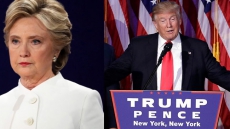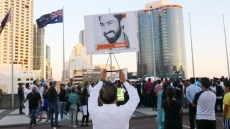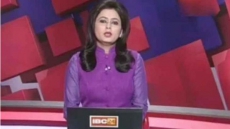An Indian-origin futures trader, who was extradited to the US after being arrested in the UK for his alleged role in the 2010 Wall Street "flash crash" which wiped nearly USD 1 trillion off the value of American shares in minutes, has pleaded guilty in a court in Chicago.
Navinder Singh Sarao, 37, of Hounslow, United Kingdom, pleaded guilty to one count of wire fraud and one count of spoofing before US District Judge Virginia Kendall of the Northern District of Illinois.
Mr Sarao was extradited to the US on November 7 and made his first court appearance yesterday.
The charges against him include his role in the May 6, 2010 'Flash Crash' when the Dow Jones Industrial Average plunged 600 points in five minutes, the US Assistant Attorney General Leslie R Caldwell said.
"Navinder Sarao abused sophisticated technology to make a quick profit, and jeopardised the integrity of US financial markets," Leslie R Caldwell said.
"By flooding the marketplace with bogus orders, his scheme victimised countless individuals," he said.
As part of his guilty plea, Mr Sarao admitted that he used an automated trading programme, along with other techniques, to manipulate the market for E-mini Standard & Poor's (S&P) 500 futures contracts (E-minis), stock market index futures contracts based on the S&P 500 index, through the Chicago Mercantile Exchange (CME).
The E-mini S&P 500 is considered among the most widely traded financial products in the world.

Mr Sarao admitted that he placed thousands of orders that he did not intend to trade, or 'spoofed orders', to create the appearance of substantial false supply and demand and to induce other market participants to trade E-minis at price and quantities they normally would not have traded.
In thousands of instances, Mr Sarao admitted, he was able to induce other market participants into buying or selling E-minis by placing the spoof orders, which had the additional purpose and effect of artificially depressing or artificially inflating the price of E-minis.
On the day of the 'Flash Crash', Mr arao entered at least 85 spoof orders to sell E-minis, which, at various times throughout that day, represented well over 20 per cent of all E-mini sell orders visible to the market, he admitted.
According to the plea agreement, in instances when a market reaction occurred, Mr Sarao frequently executed real, genuine orders to buy (typically at artificially low prices) or sell (typically at artificially high prices) E-minis.
He admitted that he frequently was able to generate significant trading profits from buying and selling his genuine orders close in time with the placement of the spoof orders.
As a result of his scheme, Mr Sarao admitted that he was able to make at least USD 12.8 million in illicit gains.
Mr Sarao was arrested by British authorities on April 21 in London at the request of the US Department of Justice.




